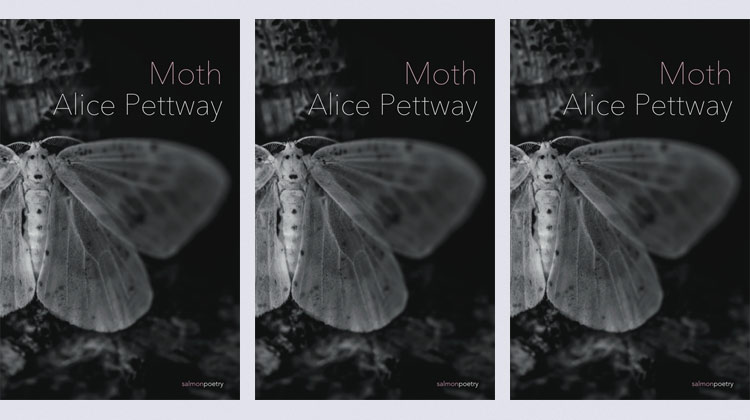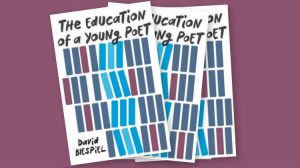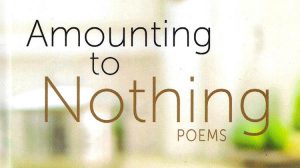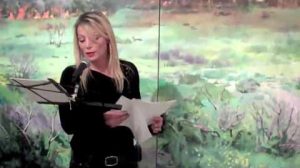Moth by Alice Pettway / Salmon Poetry / 2019 / 978-1-912561-39-1 / 64 pages

Alice Pettway’s second full-length collection of poetry, Moth, is full of tight poems of travel, remembrance, nature, grief, and bearing witness. Pettway often writes in short lines that compel us to read slowly and to revel in rereading. When sleep seems unattainable, she writes in “Insomnia”:
The earth folded
me inside it, thin
as a pressed flower.
I rested there
until the ink entered
me and the pages
opened, releasing
me into
tattooed air.
Although her compact poems do not dwell in myth or biology, the poet invokes and uses both. In the poem, “New Year’s Eve,” Pettway writes of long ago hearing a story of a “unicorn driven / into the sea.” The speaker in the poem responds:
I learned
all beauty
breathes under water,
can be trapped.
Last night, we sieved
phytoplankton.
Pettway begins Moth with metaphor in the short poem, “Home,” as she describes home as lure, crackle, heat, and singed wings. Curiosity urges readers to leave the book for a moment to recall or discover mythologies regarding the white moth as we consider the title of her book. For some in South America, the white moth symbolizes an ancestor coming to visit or can represent the soul of the dead departing. This seems fitting because a number of the book’s poems allude to the decline and death of the speaker’s mother. For some spiritual practitioners, the moth may be elusive, but delivers clarity and intuition. In the poem “Mourning,” Pettway captures this in nine lines:
If I believed in graves,
I would sit at the head of yours
slurping in the marble remnants
of your stories. But I don’t.Your heap of grass holds no truth.
You are tucked between
pages of photographs, silverfish,
fat with memories,
unaccustomed to lamp light.
This poet travels. Originally from her rural hometown in Texas, she has taught Creative Writing in Columbia, South America and presently teaches English in Shanghai. Her articles on women’s rights in the U.S. are available in The Progressive or on the Teaching Tolerance website. Often, her poetry reveals a socio-political layer, as her poem about Columbia, “Frontera,” conveys, “Outside / our room, soldiers // watch the jungle / slink black and white / across a screen.” Although we don’t know the entire narrative, these words enable us to become observers as if we are alongside the poet. Another poem may have been inspired by events in Columbia but works universally. In “Street Art,” we read, “If people remember, a blank wall / has a louder report than shots / fired by painted guns, but people forget.” In “No One Watches Narcos” the poet intones, “They want / tragedy, a show they’ve seen so often / they can watch with the sound off.” This poem bridges into the prophetic about the universalities of observers who become desensitized to violence and upheaval.
A longer poem in couplets, “We, Who Are Still Neighbors,” begins using divisive neighbors to imply a myriad of relationships in the world. Closed doors and tall walls come to mind with the words:
We, who are still neighbors,
still women, have not unlockeda gate in years. The crops
have grown so tallthat to see each other
we would have to draw close,to the place where one idea
touches another, where bothcan shift, or one find its way
toward the other.
The nostalgia of home and the sinking-in of grief become way station in this poet’s travels. Her poem “Inheritance,” alludes to children growing up dealing with a mother’s mental health challenges, “We knew even then, minds can separate // from reality like old window glaze / pulling away from glass.” There is both revelation and compassion in her lines of vivid simile.
Pettway reminds women how mothers prepare daughters for their forays into womanhood. In the poem, “Mama,” the speaker writes of applying and then a mother removing a daughter’s make-up, and of images from a mirror remaining, “Even now, I peer blindly into plate glass windows /
and spoons, able to see myself / only in the fun-house mirror of her perception.”
Small books of poetry be tucked inside satchels, purses. and backpacks to travel with us as they speak of and bear witness to past and present events in the world and in the poets’ lives. Images of mirrors in Moth help both poet and readers receive, perceive, and reflect on what the poems offer even if the twirling words sometimes reveal the spin of confusion. These poems suggest story and emotion through images without dwelling on broad narrative. Alice Pettway’s poems are gems to carry, read, reread, and reflect upon.





Leave a Reply